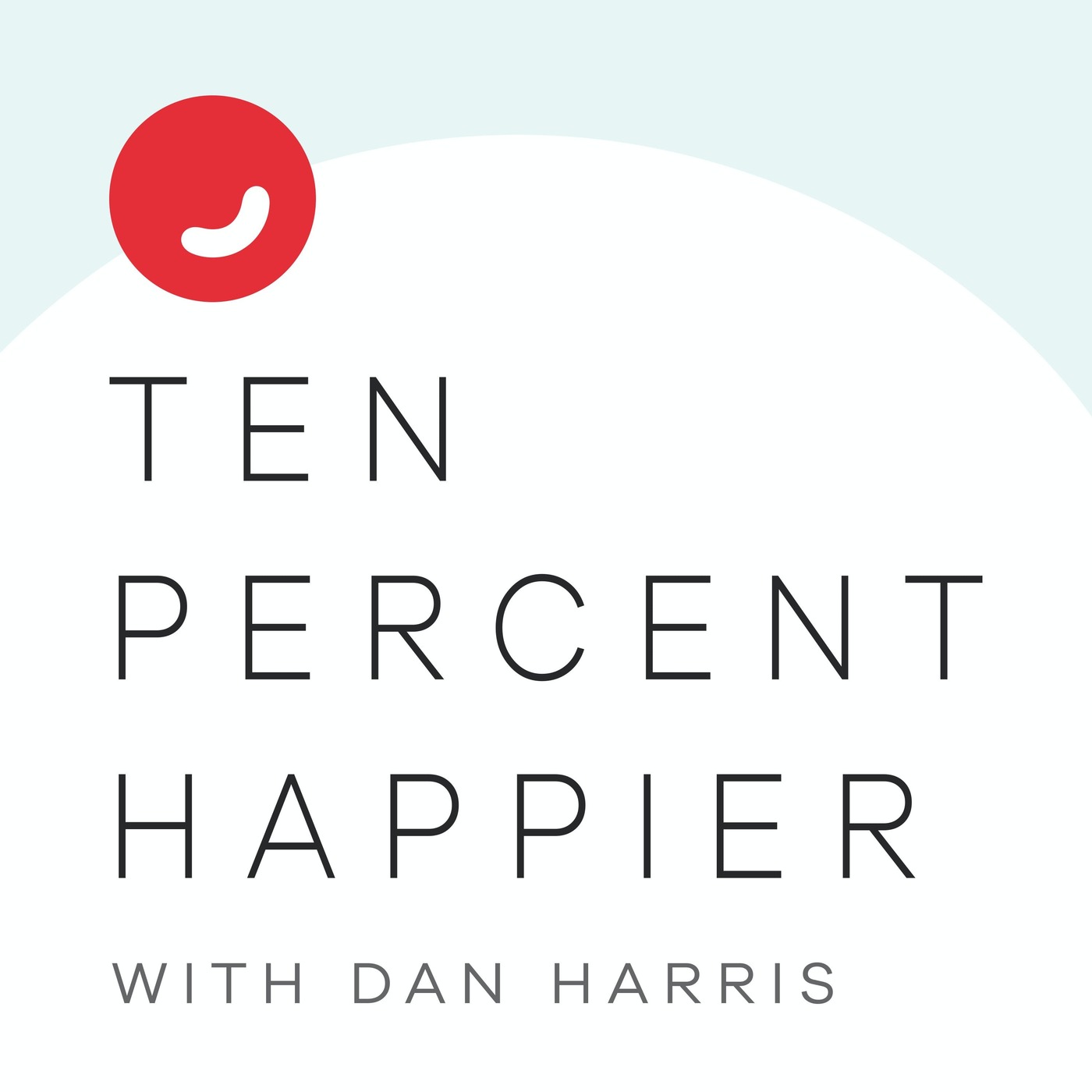Podcast Summary
Finding peace through compassion and meditation during global crisis: During global crises, practicing compassion and meditation can help individuals find inner peace and resilience, and also enable them to send love and virtues to those affected, spreading positivity and hope.
The power of compassion and meditation in finding peace and resilience amidst global suffering. Mingyur Rinpoche, a renowned meditation master from Nepal, shared his personal experiences of coping with the current global crisis by dedicating his time to teaching meditation and praying for peace and the alleviation of suffering. He explained that his form of prayer is not in the traditional sense of communicating with a deity, but rather an act of cultivating compassion and sending love and virtues to those affected by the pandemic and other forms of suffering. By practicing compassion and meditation, Mingyur Rinpoche finds inner peace and the ability to help others, even in the midst of chaos.
Recognizing inner goodness and positive qualities: Practicing appreciation and open-hearted love for simple things, people, and the world can change interactions and make the world better. It's about recognizing and appreciating positive qualities in all beings, including ourselves.
The power of the mind is strong and can help us recognize the inner goodness and positive qualities within ourselves and others. This recognition leads to a deeper appreciation and love for all beings. The practice begins with appreciation for simple things in life and extends to people and the world around us. This open-hearted love and compassion can change the way we interact with others and make the world a better place. It's not just about recognizing the positive qualities in others but also in ourselves. The mind doesn't have limitations, and by recognizing and appreciating these qualities, we can help ourselves and others. This love and compassion are not limited to romantic notions but are the capacity to see the best in all beings.
The Importance of Self-Love in Love and Compassion: Recognize the importance of self-love, acknowledge feelings of self-hatred, be kind and compassionate towards ourselves, and practice self-love for positive changes and happier lives.
Self-love is an essential yet often overlooked aspect of love and compassion. It's important to recognize that we all have the capacity for love within us, including self-love. However, some individuals may struggle with this concept and feel a lack of self-love or even self-hatred. This can prevent them from fully practicing and experiencing the benefits of love and compassion. It's crucial to acknowledge these feelings and understand that self-love is a journey, not an instant achievement. It's essential to be kind and compassionate towards ourselves, just as we would be towards others. Despite the challenges and pressures we face in life, practicing self-love and compassion can bring about positive changes and help us lead happier lives.
Recognizing Love and Compassion Within: Even during hardships, our deepest desires stem from love and compassion for ourselves and others.
Love and compassion are the opposites of selfishness, and they exist within us all the time. The first step to recognizing this is by feeling the desire for happiness and freedom from suffering within ourselves. Even during difficult emotions or challenging situations, the underlying feeling is one of love and compassion. This perspective can bring ease and happiness in our daily lives, even during trying times. So, instead of getting bogged down by fear or trauma, remember that every desire for comfort or relief is an expression of our inherent love and compassion.
Understanding Emotions: Seeking Happiness and Freedom: Allow yourself to fully experience emotions without judgment to discover love and compassion beneath the surface, focusing on innate goodness for peace and understanding.
Emotions and thoughts, including love and hatred, are driven by our mind's desire for happiness and freedom. When we resist or try to control these emotions, they can worsen, but if we allow ourselves to fully experience them without judgment, we can discover the love and compassion beneath the surface. This process of acknowledging and accepting our emotions is a form of meditation and self-awareness. In the face of political division and hatred, focusing on our innate goodness and taking peaceful, enriching, monetizing, and powerful actions motivated by love and compassion can help bridge the gap. It's important to remember that everyone, including those we may disagree with, is seeking happiness and freedom in their own way.
Separate actions from true selves for peace: Believe in people's inherent goodness, separate negative emotions from true selves, and respond with compassion for a peaceful and fulfilling life. Focus on positive sources of power for positive impact.
It's essential to recognize the fundamental goodness in people and separate their actions or negative emotions from their true selves. Hatred and anger are natural but can make us lose control. To manage these emotions, we should try to understand that everyone, including ourselves, has inherent purity and goodness. This belief can help us focus on the positive and overlook the negative, which is often exaggerated due to our negativity bias. When we encounter people or situations that trigger negative emotions, we should strive to separate their actions or negative emotions from their true selves, and respond with compassion and wisdom instead of hatred or anger. This approach can lead to a more peaceful and fulfilling life. Additionally, many people ask about the belief in fundamental goodness during teaching sessions. Some cultures hold the belief of original sin, but it's essential to remember that everyone has an inherent purity and goodness. This belief can help us focus on the positive and overlook the negative, leading to a more peaceful and fulfilling life. Furthermore, it's important to recognize that powerful actions and inspirations come from love, compassion, and role modeling, rather than from hatred or negativity. By focusing on these positive sources of power, we can make a positive impact on ourselves and the world around us.
Explore new activities during the pandemic: Use this time to discover inner selves, learn new skills, or spend quality time with family, and take advantage of technology and resources for a memorable Easter brunch.
The current pandemic situation presents an opportunity for self-exploration and creativity. Instead of worrying about boredom or panic, individuals can use this time to discover their inner selves and engage in new activities. For instance, one can explore gardening, learn new skills, or spend quality time with family. Moreover, the availability of technology and resources, such as online learning materials and electronics, can help make the most of this time. Additionally, Easter is a perfect time for a brunch with loved ones, and Whole Foods Market offers high-quality products and catering options to make the occasion special.
Embrace impermanence and learn together: Continuously accept change, look for 'Mr. and Mrs. Okay', and explore new interests to deepen relationships
Accepting the impermanence of relationships and continuously learning from each other are essential for maintaining a healthy and deep connection. The speaker emphasizes that nobody is perfect and encourages looking for "Mr. and Mrs. Okay" instead of seeking perfection. She also suggests exploring new interests and activities together to keep the relationship exciting and growing. The speaker, who is a meditation teacher, has chosen to remain single and dedicate her life to teaching meditation and going on solitary retreats, which have been deeply meaningful experiences for her. Previously, she shared her story of surviving a near-death experience during a long wandering retreat.
The interconnectedness of all things and the impermanence of self: Through near-death and meditation experiences, the speaker discovered the importance of awareness, love, joy, and letting go of the conceptual mind. He explored ancient Buddhist texts, including the Abhidharma and Prasanaparamita, which offer insights into the nature of consciousness and interconnectedness.
The speaker's experience of near-death and extended meditation led him to a profound realization of the interconnectedness of all things and the impermanence of self. He discovered the importance of awareness, love, and joy, and let go of the conceptual mind. The speaker also shared his exploration of ancient Buddhist texts, specifically the Abhidharma, which delves into the workings of the mind and its five skandhas (form, feeling, perception, mental formations, and consciousness). Another text he mentioned was the Prasanaparamita, which focuses on wisdom and the nature of reality, emphasizing emptiness and the lack of a permanent self. These teachings offer valuable insights into the nature of consciousness and the interconnectedness of all things.
Discovering Inner Wisdom through Present Awareness: According to Pranjaparamita philosophy, we all have inner wisdom and perfection. By being present and aware, we can access it, letting go of dualistic mind and grasping, and connecting with our fundamental nature.
According to Pranjaparamita philosophy, we all possess inner wisdom and perfection, and to discover it, we must first be aware and present in the moment. Our consciousness, mind, and awareness are like a lamb, illuminating the world around us while being luminous itself. By recognizing this and letting go of the dualistic mind and grasping, we can access our innate love, compassion, and wisdom. The conceptual mind is a tool to help us understand and practice, but ultimately, we must go beyond it to connect with the mind beyond concept. This mind is our fundamental nature and is always present, requiring no action or effort on our part. Through practices like open awareness meditation, we can learn to be with our minds as they are, allowing us to experience the present moment and our inherent wisdom.
Embrace the present moment for love and positive change: Practice self-acceptance, be present, and engage in making the world a better place for unconditional love and compassion
Allowing yourself to be in the present moment, accepting your feelings and mistakes without judgment, is a form of deep and powerful love. This acceptance leads to unconditional love and compassion, which can be contagious and help bring about positive change in the world. It's important to remember that this acceptance is not resignation or passivity, but rather a way to transform oneself and engage actively in making the world a better place. So, take a moment to breathe, be present, and allow yourself to be with your feelings - this is the path to love and positive change.
A safe haven from disasters and crime: The Last City podcast invites listeners to escape to a pristine world, promising security and appealing to travelers and rewards cardholders
The Wondery podcast, "The Last City," offers listeners an escape to a safe and pristine world called Pura, where they are promised security from natural disasters and crime. This audio drama is available for free on Wondery Plus, with early and ad-free access for Wondery Plus members and Prime members on Amazon Music. The series targets travelers, who are often in search of perfect getaways, and cardholders of specific travel rewards cards, like the Delta Sky Miles Platinum American Express card, which offers monthly statement credits for U.S. rideshare purchases. The Last City is a scripted audio drop that invites listeners to leave their concerns behind and join a community where they can feel secure. Listeners can enjoy all episodes of The Last City now for free with a Wondery Plus trial.




